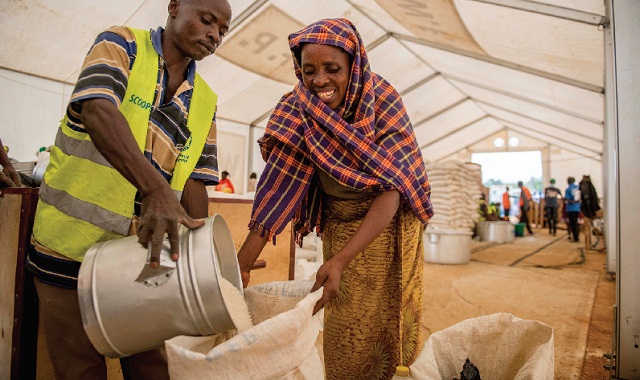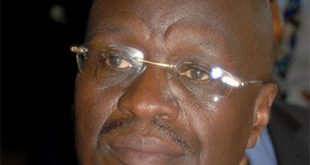
Kitty part of Shs 296 billion grant Germany will give to Uganda over the next two year
Kampala, Uganda| RONALD MUSOKE | Refugee hosting communities in northern Uganda will benefit from some €15 million (Shs 64 billion) from Germany according to a new bilateral development cooperation agreement signed on Nov.16 in Kampala.
The news is a major relief to the Uganda government which is struggling to deal with an influx of refugees in the country— the majority of whom are South Sudanese.
A statement from the German embassy indicated that the €15 million is part of the €36.2 million geared towards agriculture and rural development. Over all, Germany is giving a total of€ 69.5 million (Shs 296.33 billion) to Uganda in development cooperation over the next two years.
Uganda and Germany have also agreed to focus on renewable energy as well as other initiatives meant to strengthen public finance management systems, governance and civil society as well as technical and vocational training for the Ugandan youth.
At the centre of the new cooperation arrangement is Uganda’s second National Development Plan currently under implementation and the so-called “Marshall-Plan for Africa” which is the new strategy for the German Development Cooperation.
Patrick Ocailap, the deputy secretary to the treasury signed on behalf of Uganda while Niels Breyer, the director for East Africa at the Federal Ministry of Development Cooperation signed on behalf of Germany.
According to the new deal, Germany hopes to rejuvenate Uganda’s agricultural sector which does not only employ most of Uganda’s labour force but also has the potential to boost the country’s food security.
Although in the past, focus of German cooperation has been on water and sanitation, funds will also be rechanneled into water for production to address the growing pressure on water resources to address climate change.
Germany will also invest in 40 solar-powered mini-grids in rural areas to bring electricity to marginalized villages which are quite far away from the national grid. These mini-grids will serve families and small scale industries with reliable access to electricity for private and productive use. According to the new agreement, up to €23.2 million will go into these new projects.
Germany has in the past successfully supported off-grid power projects thanks to the GetFit programme, which uses public funds to boost decentralization of renewable power generation.
The new focus of Germany’s development cooperation with Uganda in the energy sector is in line with the sentiments German ambassador Dr. Albrecht Conze shared with The Independent in an interview, early this year.
When The Independent asked him about the focus of his new role as German ambassador to Uganda, Dr. Conze emphasized the need for the installation of more solar power plants in the countryside.
“Solar power plants should be installed in other places because Uganda has abundant sun,” he said.
Germany has also set aside about € 10 million (with another €10.1 million subject to German Parliament approval) for anti-corruption, public finance reform, governance, human rights and civil society activities.
Germany’s bilateral programmes in Uganda are implemented by German International Cooperation (GIZ) and KfW – the German Development Bank.
 The Independent Uganda: You get the Truth we Pay the Price
The Independent Uganda: You get the Truth we Pay the Price



